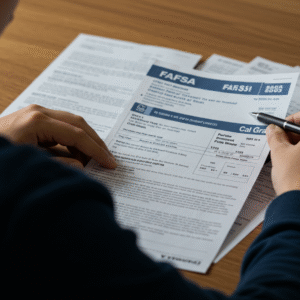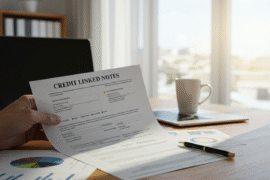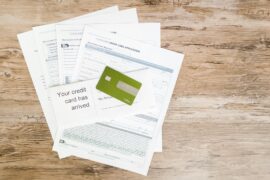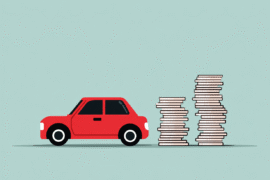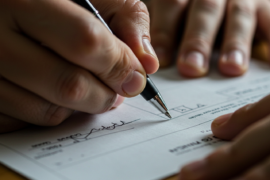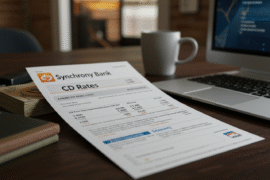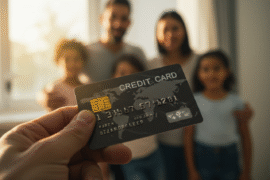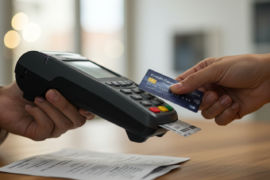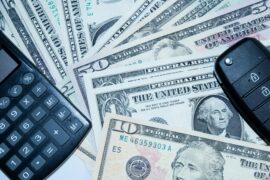This article may contain references to products or services from one or more of our advertisers or partners. We may receive compensation when you click on links to those products or services. Nonetheless, our opinions are our own.
The information presented in this article is accurate to the best of our knowledge at the time of publication. However, information is subject to change, and no guarantees are made about the continued accuracy or completeness of this content after its publication date.
Credit cards are a simple way to keep track of your purchases, but they can also be hard to understand, especially when you see terms like “closing date” and “due date” that might not make sense at first. You need to know these dates to manage your money well and avoid paying extra fees. The due date is when you need to pay, and the closing date is when your billing cycle ends. You can avoid late fees, lower interest charges, and keep your credit score in good shape by keeping track of these important dates. We’ll go over these important dates, show you how to use them to your advantage, and give you some helpful tips for making your credit card payments on time. If you want to make better financial decisions, knowing these basics will help you whether you’re new to credit cards or just want to get the most out of your payments.
- Highlights
- Credit Card Basics
- The Role of Due Dates in Managing Finances
- Closing Dates Explained: What They Mean for You
- Preparing for Financial Management
- Essential Tools and Resources for Effective Credit Card Use
- Setting Up Notifications to Avoid Missed Payments
- Step-by-Step Guide to Navigating Due Dates and Closing Dates
- Conclusion
- Frequently Asked Questions
- Recommended Reads
Highlights
- It is important to know the difference between your credit card’s closing date and due date. This is important for keeping track of your money.
- The closing date is the end of your billing cycle. The due date is when you need to make your payment.
- Keeping track of these dates can help you avoid late fees. It can also reduce interest charges and keep your credit score healthy.
- You can use tools like calendars and online account management. Setting up payment reminders can also make tracking your credit card easier.
- If you have questions, feel free to contact your credit card issuer. They can help you change your due date or find other options to better manage your account.
Credit Card Basics
You can buy things now and pay for them later with a credit card. The limit on each card is the most money you can borrow. The more you use your credit card, the less money you can spend. But your credit limit goes back up when you pay. This back-and-forth of spending and paying is what you call credit card activity.
Your credit card rules say what the interest rates, fees, and rewards are. You should read your credit card agreement carefully. This will help you understand everything about your card.
The Role of Due Dates in Managing Finances
Your credit card due date is very important for keeping track of your credit card. You have until today to pay without a late fee. You might have to pay late fees if you miss this date by even one day. This could also hurt your credit score.
People can tell how trustworthy you are when you borrow money by looking at your credit score. Your payment history is a big part of this score. If you don’t pay your bills on time, it can show up on your credit report for years. This will make it harder to get loans or credit in the future.
You should write the due date on a calendar to avoid this. You can also set reminders to help you remember. These steps will help you stay out of trouble with money.
Closing Dates Explained: What They Mean for You
The date your credit card closes is important. It tells you when your billing cycle is over. Your card issuer figures out your statement balance on this date. This balance includes all the fees, purchases, and interest from that billing cycle.
A lot of the time, credit card companies give you a grace period. This is the time between the date you close and the date your payment is due. You can pay off your statement balance in full during this time. You can avoid paying interest on new purchases if you do this.
You can pay off any purchases made before the 10th without paying interest if your closing date is the 10th and your due date is the 30th. Just remember that there is usually no grace period for cash advances and balance transfers.
Voted "Best Overall Budgeting App" by Forbes and WSJ
Monarch Money helps you budget, track spending, set goals, and plan your financial future—all in one app.
Get 50% OFF your first year with code MONARCHVIP
Preparing for Financial Management
Taking care of your credit cards is important for your money. You need to know what your cards say. Also, keep track of how much money you spend and make sure you pay on time. There are a lot of tools and resources that can help you, which is good news.
These tools can help you stay on top of things. They can help you make good choices with your credit card and avoid making mistakes.
Essential Tools and Resources for Effective Credit Card Use
Managing your credit cards is easy in today’s online world. There are many tools that can help you. Your credit card issuer’s online account is an important tool. This platform shows you everything you need to know about your account. You can find out how much money you have, see your transaction history, and see how much you need to pay.
Other Helpful Tools
- Online Account: Most credit card companies let you manage your account online. You can keep track of your transactions, see your statements, make payments, and set up alerts.
- Mobile Apps: Many companies offer apps for your phone. This helps you check your account anytime and make payments fast.
- Budgeting Apps: These apps connect to your financial accounts. They can help you organize your spending and create a budget that fits you.
- Consumer Financial Protection Bureau (CFPB): The CFPB offers useful resources and tips on many financial topics, like how to manage credit cards.
These tools help you feel organized and manage your money better.
Setting Up Notifications to Avoid Missed Payments
We often forget when our credit card payments are due because we are so busy. You could get late fees and hurt your credit score if you don’t pay on time. Setting up reminders is a great way to stay on top of things.
A lot of credit card companies let you sign up for text or email alerts. These alerts can let you know about important dates, like when your payment is due, when your account will be closed, and when your payment has been received. These reminders make sure you never forget to pay.
You can better manage your credit card payments by using technology. This will help you keep your credit history in good shape.
Step 1: Identifying Your Credit Card’s Billing Cycle
The time between the last day of your last credit card statement and the last day of your current billing cycle is called your billing cycle. This time usually lasts between 28 and 31 days.
You can find out when your billing cycle starts and ends by looking at your credit card statement. Look for the part that says “Billing Cycle” or “Statement Period.” It usually has a date range, like “January 10 to February 9.”
You can find out your closing date once you know when your bills are due. The last day of that cycle is the closing date.
Step 2: Marking Due Dates and Closing Dates on Your Calendar
Make sure to write down the dates of your billing cycle and closing date on your calendar. Also, make a note of when your payment is due. You can greatly lower the chance of missing any payments by doing this.
Treat the due date and closing date on your credit card like important meetings. You will remember these dates better when you can see them clearly. This helps you make smart decisions about your money.
Step 3: Planning Payments to Optimize Interest Savings
Strategic payment planning can help you save on interest and manage your credit card debt better. Consider these methods:
| Approach | Description | Benefits |
|---|---|---|
| Full Balance Payment | Pay your entire statement balance in full by the due date. | Avoid interest charges and maintain your grace period. |
| Minimum Payment | Make only the minimum payment required by the due date. | Keeps your account in good standing but accrues interest on the remaining balance. |
| Multiple Payments During Cycle | Make several smaller payments throughout the billing cycle. | Helps manage cash flow and potentially reduces interest charges. |
By learning about these payment strategies, you can pick the best way for your money situation.
Conclusion
To manage your money well, you need to know the difference between due dates and closing dates. If you handle your credit card payments well, you can save money on high interest rates and keep your credit score high. Be sure you know when your bills are due. To avoid making mistakes, set up reminders and plan your payments carefully. Taking charge of your money now will help you have a less stressful future.
Frequently Asked Questions
What Happens If I Pay After the Closing Date but Before the Due Date?
If you make a payment after the closing date but before the due date, your payment will be considered on time. However, any purchases made after the closing date will be added to your next billing cycle.
Is It Better to Pay the Full Balance or the Minimum Payment by the Due Date?
Paying your full balance by the due date is the best choice. This way, you can avoid interest charges and protect your credit score.
How Do Multiple Payments Within a Billing Cycle Affect Interest?
Making several payments in a billing cycle can help lower your interest charges by reducing your average daily balance.
Can Changing My Due Date Improve My Credit Score?
Changing your due date will not directly raise your credit score, but it can help you make on-time payments, which positively affects your credit history.

Reviewed and edited by Albert Fang.
See a typo or want to suggest an edit/revision to the content? Use the contact us form to provide feedback.
At FangWallet, we value editorial integrity and open collaboration in curating quality content for readers to enjoy. Much appreciated for the assist.
Did you like our article and find it insightful? We encourage sharing the article link with family and friends to benefit as well - better yet, sharing on social media. Thank you for the support! 🍉
Article Title: Due Date vs. Closing Date: Don’t Get Caught Paying Interest
https://fangwallet.com/2025/07/29/due-date-vs-closing-date-dont-get-caught-paying-interest/The FangWallet Promise
FangWallet is an editorially independent resource - founded on breaking down challenging financial concepts for anyone to understand since 2014. While we adhere to editorial integrity, note that this post may contain references to products from our partners.
The FangWallet promise is always to have your best interest in mind and be transparent and honest about the financial picture.
Become an Insider

Subscribe to get a free daily budget planner printable to help get your money on track!
Make passive money the right way. No spam.
Editorial Disclaimer: The editorial content on this page is not provided by any of the companies mentioned. The opinions expressed here are the author's alone.
The content of this website is for informational purposes only and does not represent investment advice, or an offer or solicitation to buy or sell any security, investment, or product. Investors are encouraged to do their own due diligence, and, if necessary, consult professional advising before making any investment decisions. Investing involves a high degree of risk, and financial losses may occur including the potential loss of principal.
Source Citation References:
+ Inspo
There are no additional citations or references to note for this article at this time.

